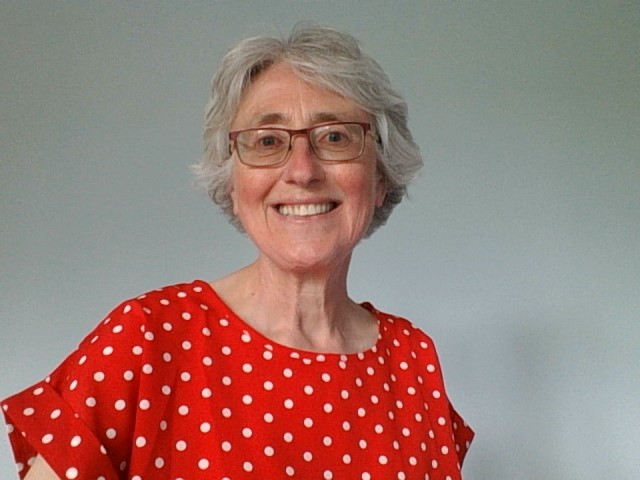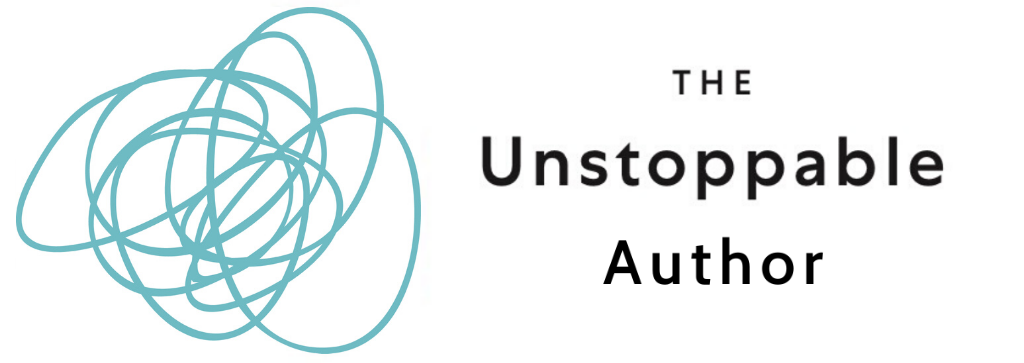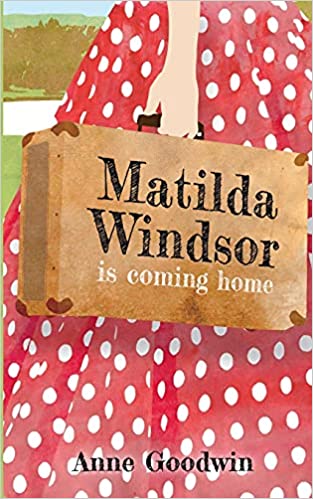
“I hoped she’d be fascinating. I never dreamt she’d be funny.”
When Anne Goodwin embarked on her latest novel, she found that her protagonist’s rich inner life was rapidly turning a serious subject into comedy…and the book was all the better for it.
When I decided to set my latest novel, Matilda Windsor Is Coming Home, in a long-stay psychiatric hospital, I wanted to avoid it being relentlessly grim. On the other hand, I didn’t want to sugar-coat the patients’ internal turmoil or the injustice of living their lives apart. I was serious about writing a serious novel that people didn’t have to brace themselves to read. I thought I’d achieve that by giving my main character, Matty, a rich interior life. I hoped readers would be curious about her belief system, and perhaps concerned about where it would lead. I hoped she’d be fascinating. I never dreamt she’d be funny.
But she was. From the very first draft. And the more I got to know her, the funnier she became. But her history is no laughing matter. Orphaned at thirteen, Matty abandons her education to care for her brother. Pregnant by the end of her teens, she’s forced to give up her baby for adoption. Then she’s stuck in the asylum for fifty years. Where is the humour in that? At a workshop with poet and comedian Kate Fox, I began to accept that humour could be serious. My critique group, beta readers and, later, my editor, reassured me my comedy wasn’t disrespectful. Nevertheless, I had to re-examine my own relationship to humour before I could reassure myself.
I’ve never seen the funny side of slapstick and get frustrated with farce. As for practical jokes, they can be a cover-up for bullying; and I couldn’t tolerate teasing as a child. I’ve mellowed over time, however, and learnt to discriminate laughing at from laughing with. The latter can’t happen without love. Do I love my character? It’s a strong term for someone I’ve made up. But I care about her deeply; in fact, I admire how she’s coped. She might have a stigmatising psychiatric diagnosis, but she’s lived the best life her circumstances allow. I feared Matty’s quirkiness would dilute the tragedy. But there’s no logical reason they can’t coexist. Indeed, a character who evokes only one emotion risks being one-dimensional. Readers don’t only find Matty amusing; she’s also brave, confusing, damaged, endearing and flawed.
We sometimes use humour to escape painful issues, but it can also help us face up to them. Readers report feeling protective of Matty and enraged by the unfairness she’s suffered. The comedy creates pinpricks of light in the darkness, so the serious side can be seen. Having mollified my internal critic, I could give the humour room to breathe. I realised the novel could be funnier, but also more honest, by exposing the madness of the supposedly sane.
We all have blind spots. We all have irrational beliefs. I gave the most damaging ‘delusions’ to the characters who didn’t have a psychiatric diagnosis, including the man convinced he’s due for a promotion when summoned for a meeting with his boss. I discovered humour in the rivalry between the mental health professionals and in the inefficiency of meetings both within the hospital and outside. I satirised the neighbours who denied being prejudiced but tied themselves in knots trying to prevent former psychiatric patients moving in next door.
Am I now a convert to comedy? I’m not sure, but I’ve surprised myself again by embarking on a follow-up in which Matty, at a hundred, confronts the legacy of the transatlantic slave trade in her own eccentric style.
Anne Goodwin writes entertaining fiction about identity, mental health and social justice. Her debut novel, Sugar and Snails, was shortlisted for the 2016 Polari First Book Prize. Her new novel, Matilda Windsor Is Coming Home, is inspired by her previous incarnation as a clinical psychologist in a long-stay psychiatric hospital. Website: annegoodwin.weebly.com; Twitter @Annecdotist ; Book blog Annecdotal
ABOUT Matilda Windsor Is Coming Home
In the dying days of the old asylums, three paths intersect.
Henry was only a boy when he waved goodbye to his glamorous grown-up sister; approaching sixty, his life is still on hold as he awaits her return.
As a high-society hostess renowned for her recitals, Matty’s burden weighs heavily upon her, but she bears it with fortitude and grace.
Janice, a young social worker, wants to set the world to rights, but she needs to tackle challenges closer to home.
A brother and sister separated by decades of deceit. Will truth prevail over bigotry, or will the buried secret keep family apart?
In this, her third novel, Anne Goodwin has drawn on the language and landscapes of her native Cumbria and on the culture of long-stay psychiatric hospitals where she began her clinical psychology career.

